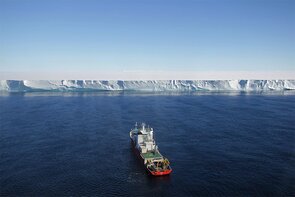
Profile
The positions in the table below reflect the Institute for Basic Science (IBS)'s position overall, domestically, within their sector, and in various subject areas based on their Share. Each position links to the corresponding table where Institute for Basic Science (IBS) is listed.
Position by research output Share
Position by research output Share in subject areas
Research
Overall research output
| Count | Share | |
|---|---|---|
| Overall | 323 | 80.66 |
Overall Count and Share for 'Institute for Basic Science (IBS)' based on the 12-month time frame mentioned above.
Research outputs by subject area
Note: Articles may be assigned to more than one subject area. Hover over the donut graph to view the Share for each subject.
Share output for the past 5 years
Compare with other institutions
Nature Strategy Reports
Identify research insights to guide research strategy and grow your impact with our Nature Strategy reports.
-
Actionable insights into research performance.
-
Detailed analysis of strengths and weaknesses.
-
Covers all major disciplines and regions of the world.
Nature Navigator
Data-driven insights for informed research strategy decisions with AI summarisation technology.
-
Track trends, summarise articles effortlessly.
-
Spark serendipitous discoveries.
-
Uncover collaboration opportunities.
Collaboration
International vs domestic collaboration by Share
| Type | Percentage |
|---|---|
| International (707 institutions) | 44.4% |
| Domestic (88 institutions) | 55.6% |
Note: Hover over the graph to view the percentage of collaboration.
Top 5 domestic collaborators with Institute for Basic Science (IBS) by Share
Collaborating institutions
Share
Top 5 international collaborators with Institute for Basic Science (IBS) by Share
Collaborating institutions
Share
Latest supplement
Relationships
Institute for Basic Science (IBS)
- Center for Genome Engineering, IBS
- Division of Chemistry, IBS
- Division of Earth Science, IBS
- Division of Interdisciplinary, IBS
- Division of Life Sciences, IBS
- Division of Mathematics, IBS
- Division of Physics, IBS
- National Institute for Mathematical Sciences (NIMS), IBS


